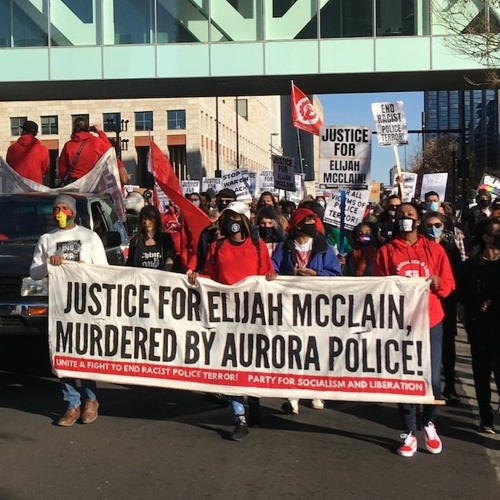Prosecutors have presented evidence in the trial of two police officers charged with the 2019 death of Elijah McClain who was given ketamine by the paramedics.

(Photo: cnn.com)
Prosecutors are set to present opening statements on Wednesday in the trial of two police officers charged with the death of Elijah McClain in 2019 who was detained while walking in a Denver Suburb.
One question that jurors could be askd to decide whether it was lawful for the two police officers to detain and use force against McClain, who was called suspicious by a 911 caller. If prosecutors couold convnce the jurors the stop was unjustified, that would undermine any argument that the victim;s injuries were a result of the two police officers just doing their job.
The two police officers were charged with manslaughter, criminally neglect reckless homicide and assault charges in a trial expected to last for about a month. The two police officers have pleaded not guilty but have never spoken publicly about the allegations against them.
READ ALSO: Seattle Man Sentenced To 40 Months In Prison After Pleading Guilty To Plotting Firebombing During Protest
The joint trial of the two police officers who restrained McClain during the August 24, 2019 arrest are one of three expected this Fall. The officer accused of putting the victim in a chokehold will have a separate trial; trial for the two paramedics is scheduled to start later this year.
Local prosecutors at first decline to press charged against the two police officers regarding McClain’s death. However, a public outcry prompted Colorado’s governor to order the state attorney general to review the case. A grand jury charged the two police officers and two paramedics in a 32-count indictment in September 2021, two years after McClain was killed.
A revised autopsy concluded that the victim died from a ketamine overdose. In a video recording of the encounter from the body camera of the police, McClain could be heard saying that he could not breathe and that he was just going home. An independent panel hired by the Aurora’s City Council found the officers who stopped McClain had no apparent reason to suspect a crime was being committed and the initial internal police investigation of the matter was flawed.
READ ALSO: Ray Epps Charged With Misdemeanor In Connection With January 6 Capitol Riot









